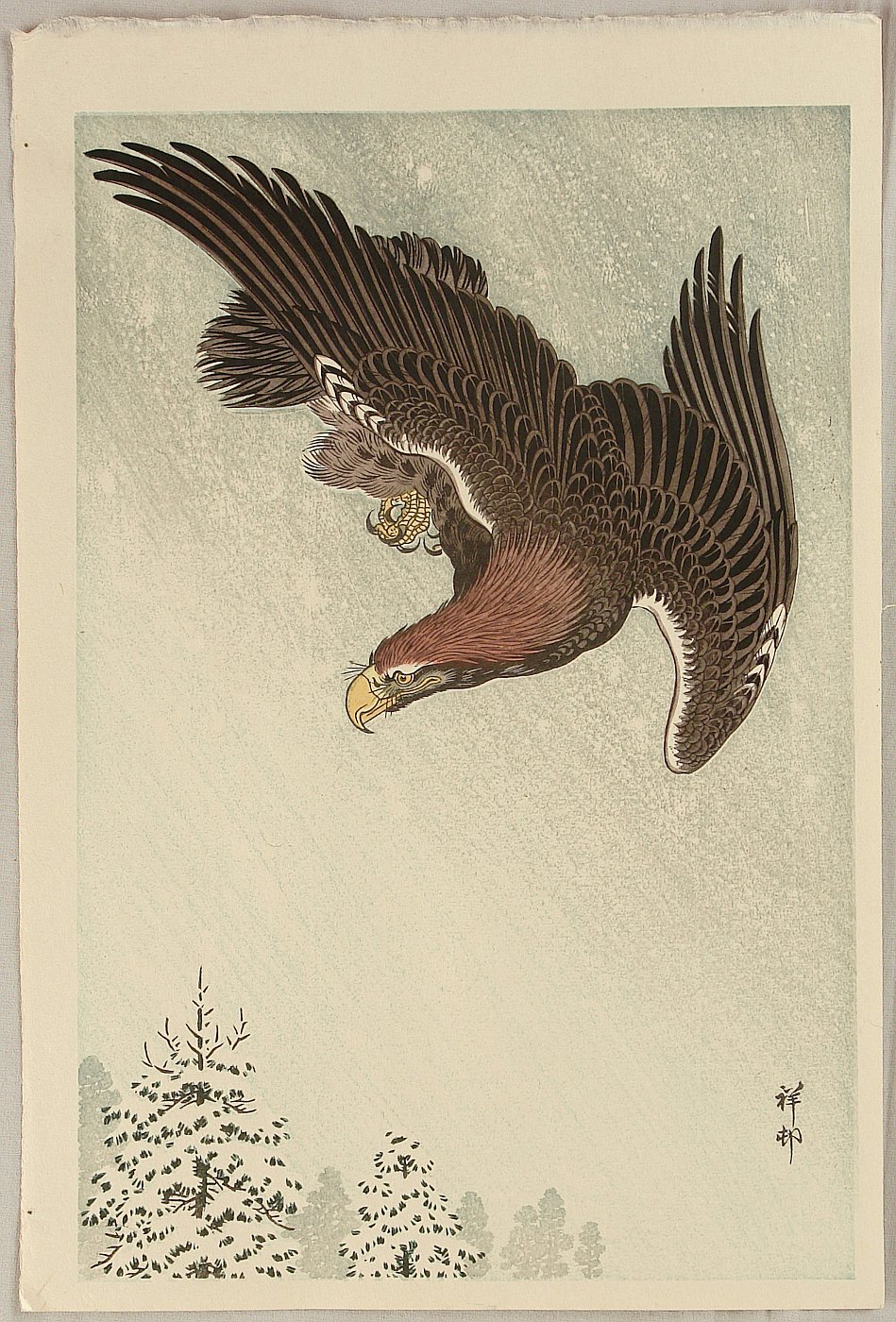
Hokusai: Eagle in Flight
The Eagle
He clasps the crag with crooked hands;
Close to the sun in lonely lands,
Ring'd with the azure world, he stands.
The wrinkled sea beneath him crawls;
He watches from his mountain walls,
And like a thunderbolt he falls.
-- Alfred, Lord Tennyson --
While the painting by Hokusai doesn't quite exactly match Tennyson's poem, I think it does portray the spirit of the poem.
Tim,
ReplyDeleteThat could very well be. I think the power of flight has intrigued humans ever since humans were human and could imagine themselves in states other than being human.
There are many ceremonies and rituals in which humans take the part of animals. And, of course, legends of shape-shifters appear on almost every continent, from wolves and bears to jaguars, and, no doubt, others I'm unaware of or have forgotten about.
possible reference to a personified deity...?
ReplyDeleteMudpuddle,
ReplyDeleteHadn't looked at it that way. Hmmm, Certainly has a godlike view and that thunderbolt reference is suggestive. . .
"Hands" leaped right out at me also, Tim.
ReplyDeleteMudpuddle and madamevauquer,
ReplyDeleteSuppose the first line began
"He clasps the crag with crooked claws"
Would that make any difference in the poem?
you mean in the sense of it? i have to assume T used the word intentionally and knew the difference between hand and claw, so, necessarily, i would think, some sort of unusual interpretation was suggested... identity between wild life and human life? or indicating a connection between the two? maybe suggesting all life is one? dunno, what do you think?
DeleteMudpuddle,
DeleteThe sense of it or your reaction to the poem. He gave up the chance for alliteration with "crooked claws" which would have given it an Old English flavor.
I don't have any definitive answer myself, but there does seem to be some sort of connection between humans and nature with the use of "hands."
It also reminds me of his oft quoted phrase from another poem, "nature, red in tooth and claw" which was published two years earlier in 1849--"In Memoriam, A.H.H."
The choice of "hands" seems to move the poem away from that in some way.
very interesting... i'll bet you're right on about that attribution; T underscoring his previous comment somehow...
DeleteMudpuddle,
DeleteYes, he didn't use claws which would be most appropriate, but hands instead. It seems to humanize the eagle in some way.
or animalize the human?
DeleteMudpuddle,
DeleteThat could work also--for we are part of nature.